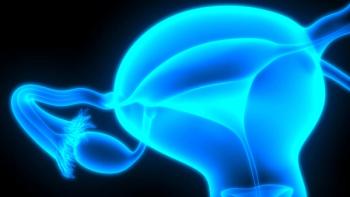
Oncology NEWS International
- Oncology NEWS International Vol 13 No 8
- Volume 13
- Issue 8
SC, IV Amifostine Compared in Patients With Advanced NSCLC on Combined-Modality Therapy
The 14 reports in this special supplement discuss theuse of the cytoprotectant amifostine in patients withcancer of the head and neck, esophagus, lung, andcervix, as well as those with lymphoma and acutemyelogenous leukemia. Discussions focus on thepotential of this agent to both reduce radiation sideeffects such as xerostomia and permit doseescalation of chemotherapy and/or radiotherapy.Improvements in treatment outcome and quality oflife as a result of cytoprotection are examined.
PHILADELPHIA-Whilethe Radiation Therapy OncologyGroup (RTOG) study 98-01 didnot demonstrate that amifostine(Ethyol) significantly decreasedgrade ≥ 3 esophagitis in lung cancerpatients treated with inductionchemotherapy followed by concurrenthyperfractionated radiotherapy(RT) and consolidation chemotherapy,it did uncover someintriguing hints of benefit.According to Maria Werner-Wasik, MD, patient swallowingdiaries suggested a reduction inswallowing dysfunction, particularlytoward the end of RT andafter its completion. There alsoappeared to be a benefit for womenand for patients older than 65years."Unfortunately these late datawere not captured well, so a studywill be done to investigate theseissues more closely," said Dr.Werner-Wasik, a radiation oncologistand associate professor atKimmel Cancer Center, JeffersonMedical College, Philadelphia.The phase II trial will enroll 76patients with inoperable nonsmall-cell lung cancer (NSCLC) atstage II, stage IIIA/B, or stage IVwith oligometastases. Patients willbe randomized to either daily amifostine500 mg SC 30 to 60 min-utes before RT or to rapid IV bolusamifostine 15 to 30 minutes beforeeach RT fraction (see Figure 1).They will be treated with concurrentthoracic RT to 64.0 Gy andweekly chemotherapy with paclitaxel(Taxol) 50 mg/m2 IV and carboplatin(Paraplatin) to AUC 2 for6 weeks. This will be followed byoptional consolidation with fourcycles of paclitaxel/carboplatin.Metastases Permitted
Unlike most similar studies, thisone will allow patients with smallbrain or liver metastases. "We believethat these patients, when treatedadequately, may live longenough for us to assess endpoints,so we are allowing patients withlocal recurrence after previous surgeryor with oligometastases thathave been definitively treated," Dr.Werner-Wasik said."The primary endpoint of thestudy is the frequency of severe(grade ≥ 3) nonhematologic toxicity,with emphasis on esophagealtoxicity. If 34% of patients historicallyget grade ≥ 3 acute esophagitisand at most 20% of the 76 evaluabletreated patients on this studydevelop grade ≥ 3 esophagitis, wecan conclude that the treatment iseffective in reducing toxicity," sheadded.Esophagitis will be evaluatedweekly during RT and for 6 weeksafter the last day of RT, then at 3months and every 3 months thereafterfor 1 year. Pulmonary functionstudies will be done at 1 and 3months after RT, then every 3months for 1 year.
Articles in this issue
over 21 years ago
Benefits of SLN Biopsy Upheld in Large Trialover 21 years ago
Gemcitabine/Taxol: Another New Standard in Metastatic Caover 21 years ago
Statins Cut Colon Ca Risk in Half in Retrospective Studyover 21 years ago
Breast Cancer Regimen Is Dose Dense, Dose IntenseNewsletter
Stay up to date on recent advances in the multidisciplinary approach to cancer.




































